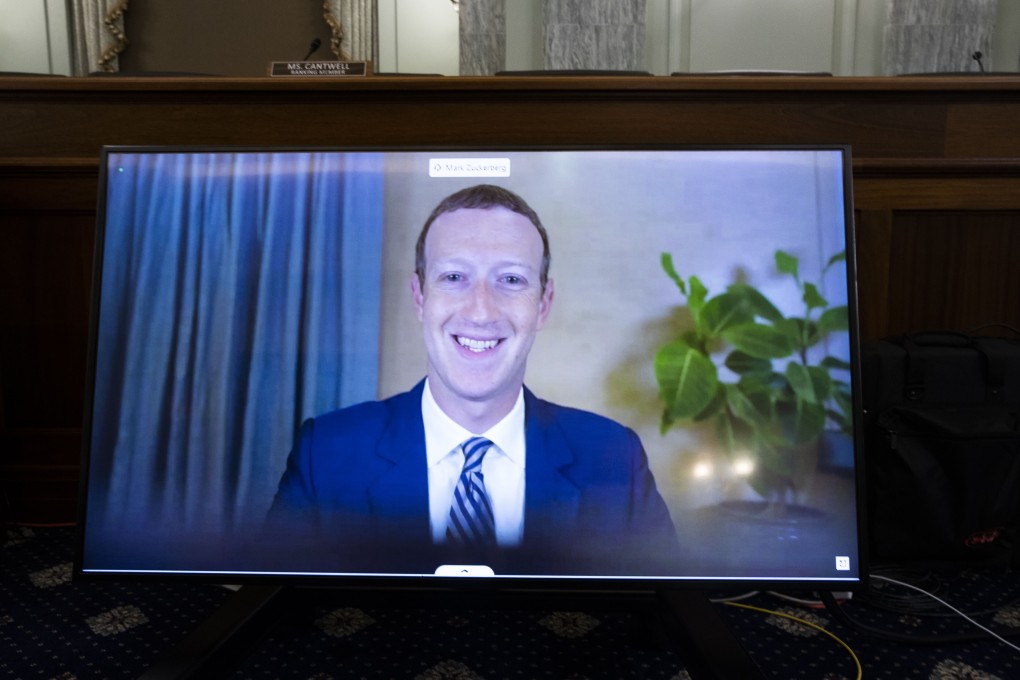US election 2020: Facebook, Google, Twitter CEOs rebuff bias claims
- US senators spar with Big Tech bosses over politics and legal immunity
- Lawmakers grill Twitter’s Jack Dorsey about blocking unverified Biden article

Under fire from US President Donald Trump and his allies, the CEOs of Twitter, Facebook and Google rebuffed accusations of anticonservative bias at a Senate hearing and promised to aggressively defend their platforms from being used to sow chaos in next week’s election.
Lawmakers of both parties, eyeing the companies’ tremendous power to disseminate speech and ideas, were looking to challenge their long-enjoyed bedrock legal protections for online speech – the stated topic for the hearing but one that was quickly overtaken by questions related to the presidential campaign.
With worries over election security growing, senators on the Commerce Committee extracted promises from Twitter’s Jack Dorsey, Facebook’s Mark Zuckerberg and Google’s Sundar Pichai that their companies would be on guard against meddling by foreign actors or the incitement of violence around the election results.
Testifying via video, the executives said they are taking several steps, including partnerships with news organisations, to distribute accurate information about voting. Dorsey said Twitter was working closely with state election officials.
“We want to give people using the service as much information as possible,” he said.